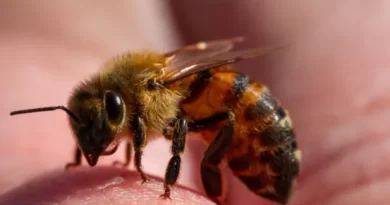Can dogs eat cherries?
Can dogs eat cherries?
Sweet, fleshy and refreshing, cherries become one of the leading fruits whenever spring arrives. Undoubtedly, it is one of the most popular fruits due to its appreciated flavor and its great antioxidant power. For this reason, it is common that, with the arrival of good weather, many caregivers wonder if dogs can eat cherries or not.

Are cherries good for dogs?
Its nutritional value and its great antioxidant power can offer multiple health benefits for our dogs.
However, it is essential to take into account a series of considerations when providing this fruit to dogs, since otherwise, its consumption can cause serious damage to their health. For this reason, we recommend that you continue reading the following sections in which we will detail the form and quantity in which this fruit can be included in the diet of dogs.
Benefits of Cherries for Dogs
As we have already mentioned, cherries are suitable fruits for dogs and can provide various health benefits, among which are:
- They have a moderate caloric value compared to other fruits, so they can be included as a reward in the diet of dogs, without considerably increasing the energy intake of their ration.
- They provide considerable amounts of fiber . Although the digestive system of dogs is not capable of digesting fiber, this is a fundamental nutrient in their diet, since it creates a feeling of satiety, contributes to the maintenance of the intestinal microbiota, regulates intestinal transit and the consistency of the stool.
- They have appreciable amounts of vitamins (vitamin C, thiamin, folate, and provitamin A), as well as significant amounts of potassium and other minerals to a lesser extent, such as magnesium, iron, phosphorus, and calcium.
- They contain anthocyanins , substances with antioxidant, anti-inflammatory and anticancer power.
They provide monoterpenes , specifically, peryl alcohol, a compound with antitumor and antioxidant activity that protects the body against cellular aging caused by the attack of free radicals.
How to give cherries to my dog?
Although cherries are good fruits for dogs, before offering them it is essential to take into account the following considerations to prevent their consumption from producing unwanted effects on the health of our dogs.
- The pulp of cherries provides various benefits for dogs, which we have discussed in the previous section. However, the seeds, leaves and stems (peduncles or «stems» that join the cherries to the branches) contain cyanide , a toxic compound that can cause poisoning in dogs. In addition, the seeds can cause suffocation or cause damage to the gastrointestinal mucosa . For all these reasons, it is important to emphasize that dogs can eat cherries without seeds , but never with seeds or with the characteristic stem that accompanies them.
- To safely offer cherries to dogs, the following steps should be followed:
- Wash them with plenty of water to remove possible traces of pesticides or contaminants present on their surface.
Remove the stem and seed from each of the cherries.
Cut them into small pieces to avoid choking.
Finally, we must point out that cherries should only be offered fresh , that is, natural. Cherries prepared in the form of jam, syrup or the like should never be given to dogs due to their high sugar content.
Dose of cherries for dogs
Although most dogs usually enjoy the taste of fruit, this does not mean that they should consume it daily, due to its high sugar content. Therefore, the healthiest way to include cherries and any other fruit in the dog’s diet is sporadically, as a reward.
In the specific case of cherries, as a reference, you can provide 2 to 4 units (depending on the size of the dog), once a week .
Side effects and contraindications of cherries for dogs
As we have seen throughout the article, cherries can produce a series of negative effects on the health of dogs when they are not provided properly:
- Intoxication : the stems, leaves and seeds of cherries contain cyanide, a compound that produces an intoxication picture characterized by panting, dyspnea, congestive (reddish) mucous membranes, mydriasis (pupillary dilation) and shock.
- Suffocation : it is caused by the seeds, or by the fruit itself when it is offered whole, without cutting it into pieces.
- Gastrointestinal ulcers : when the seeds are not removed, they can damage the gastrointestinal mucosa as they pass through the digestive system.
In addition, there are certain situations in which it can be counterproductive for dogs to consume cherries:
- Food allergies or intolerances .
- Gastrointestinal pathologies .
- Dogs with a digestive system especially sensitive to changes in diet.
Finally, remember the importance of introducing any new food into your dog’s diet in small quantities and monitor the possible appearance of negative effects on his health after consumption.



